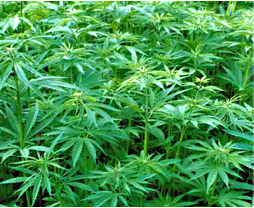 UN Tells Nigerian Government to Legalize Marijuana Use
UN Tells Nigerian Government to Legalize Marijuana Use
The Nigerian government has been advised by the United Nations to approve the use of marijuana for medical purposes, as the international agency also noted that those addicted to them are sick and need treatment, care and rehabilitation.
In her presentation at a one-day public hearing on the rising abuse of pharmaceutical drugs among youths in Nigeria, an event organized by the Senate’s joint Committee on Drugs and Narcotics and Health, the Project Officer of the United Nations Office on Drugs and Crime in Nigeria, Harsheth Kaur Virk, said Marijuana is a miracle drug allowed for medical purposes by the UN but not for recreational purposes.
“Nigeria, as a sovereign nation, has its stringent laws against it; but international conventions of the UN have approved it for medical purposes, based on the outcome of researches conducted to that effect by globally recognised institutes” she said.
Vick who charged Nigeria’s security agencies to be proactive in their anti-drug trafficking campaign and not reactive, further stated that apart from cannabis (Marijuana), users of other addictive drugs for recreational purposes, as approved by the UN, should not be criminalized but rehabilitated.
“The Drugs and Crime Office of the UN sees addictive drug users as people who are sick, in need of treatment, care and rehabilitatiom” Vick said.
Although marijuana is illegal in Nigeria, the country is a major source of West African-grown marijuana, and ranked world’s eight highest consumer of the drug.
It is widely grown across the States of Nigeria including Ondo State, Edo State, Delta State, Osun State, Oyo State and Ogun State.
Cannabis use and other related drug abuse cases is controlled by the National Drug Law Enforcement Agency (NDLEA) in collaboration with the U.S government, to combat narcotic trafficking in West Africa. The possession of cannabis is illegal and is punishable by a minimum sentence of 12 years in prison. In serious trafficking cases, life imprisonment may be imposed.



